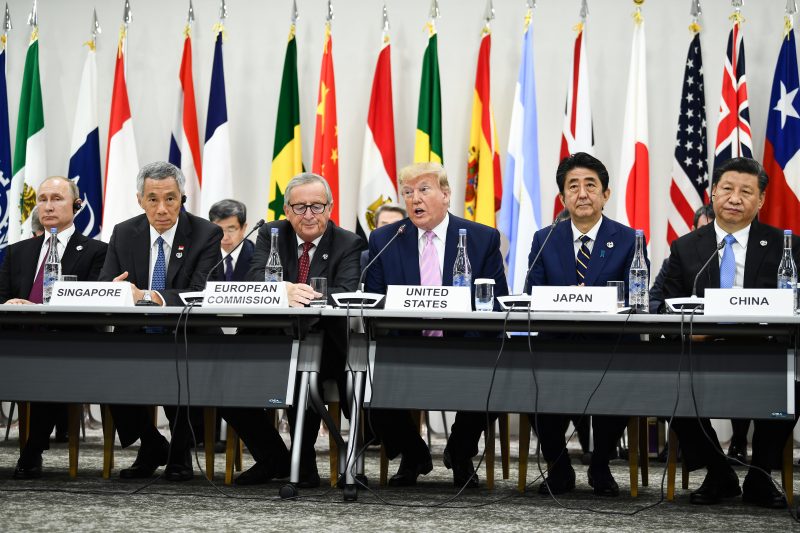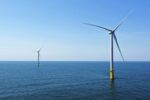Who needs the G20? Question gets louder in Osaka
The bloc has been criticised for holding expensive and inconclusive summits while excluding most of the developing world (Brendan Smialowski)
Osaka (Japan) (AFP) – Donald Trump’s go-it-alone approach and widening global differences on issues from trade to climate change are overwhelming the G20, analysts say, raising questions about whether the grouping still has a role to play in the world.
The bloc, which expanded out of the original G7 rich-country club, has faced criticism over the years for lacking a charter, a clear mandate, or enforcement power, and holding hugely expensive yet inconclusive summits while excluding most of the developing world.
But while pressure on the bloc previously came from anti-globalisation protesters, this weekend’s summit in Osaka showed that the greatest challenges to its legitimacy may come from within.
Trump flew into Osaka after hurling new trade threats at G20 partners China and India.
Japan failed to achieve a top priority of the summit’s host, Prime Minister Shinzo Abe: forging a stronger, unanimous commitment to the Paris climate accords — due to US resistance.
Russia’s Vladimir Putin said in the summit run-up that the liberalism long championed by G20 heavyweights Europe and the US was “obsolete”.
And the bloc looked powerless on the biggest issue faced in Osaka — the US-China trade war, which was hashed out in a bilateral meeting on the sidelines.
“The G20 was created as a forum for cooperation and the question may well be: have we reached the point where it can no longer serve that purpose?” said Thomas A. Bernes, a fellow with Canada’s Center for International Governance Innovation.
– Bystanders –
The G20’s baseline goal is preservation of world economic stability, but Trump has taken a sledgehammer to that with his “America First” trade war against China, and tariffs imposed on longtime trading partners he now derides as trade cheats.
As with last year’s summit in Buenos Aires, the Osaka gathering was essentially hijacked by the trade fight between the world’s two biggest economies, consigning the other 18 members to the role of hapless bystanders.
After a meeting Saturday with Chinese President Xi Jinping, Trump declared the two sides would restart trade negotiations broken off weeks ago after the US accused Beijing of backsliding on earlier pledges.
While that will likely calm financial markets for now, deep differences remain and the trade war is expected to simmer on.
And the truce was worked out independent of the G20, overshadowing the summit’s closing declaration, essentially a mere summary of the bloc’s longtime talking points.
Unfortunately for the G20, said Bernes, there is no substitute for US leadership.
Britain is bogged down in Brexit, and China is yet to prove its global leadership bona fides. German leader Angela Merkel’s career is in its twilight, and Osaka’s outcomes will likely underline doubts over Japan’s effectiveness.
“The question is where is the leadership? People may complain about US leadership in the past, (but) the US did at least provide some, which then others could react to,” Bernes said.
“If you look around: who else can play that role?”
– Dark clouds –
The G20’s decline couldn’t come at a worse time.
Oxford Economics said in a research briefing that global trade growth has likely dropped to zero, compared to around six percent year-on-year growth in early 2018 -– the worst reading since mid-2009 during the global financial crisis.
Leading indicators suggest trade will shrink further, it said, noting that summits like the G20 “often disappoint in terms of generating concrete action”.
“What’s more, the problems go beyond pure growth, with bilateral disputes, particularly between the US and China, threatening to significantly erode the global rules-based trade system built up in the last several decades,” it said.
The G20 has been criticised in part for taking on an overly broad agenda, leading to disagreements and muddled outcomes.
Abe had staked his chairmanship largely on moving the ball forward on climate change, but Osaka’s outcome seems only to have underlined the bloc’s ineffectiveness, with the final declaration merely repeating language used last year.
“The regrettable results on climate change underscored the G20’s limitations. They are all on the same boat but with different interests,” said Takehiko Yamamoto, an international politics expert at Japan’s Waseda University.
Disclaimer: Validity of the above story is for 7 Days from original date of publishing. Source: AFP.


